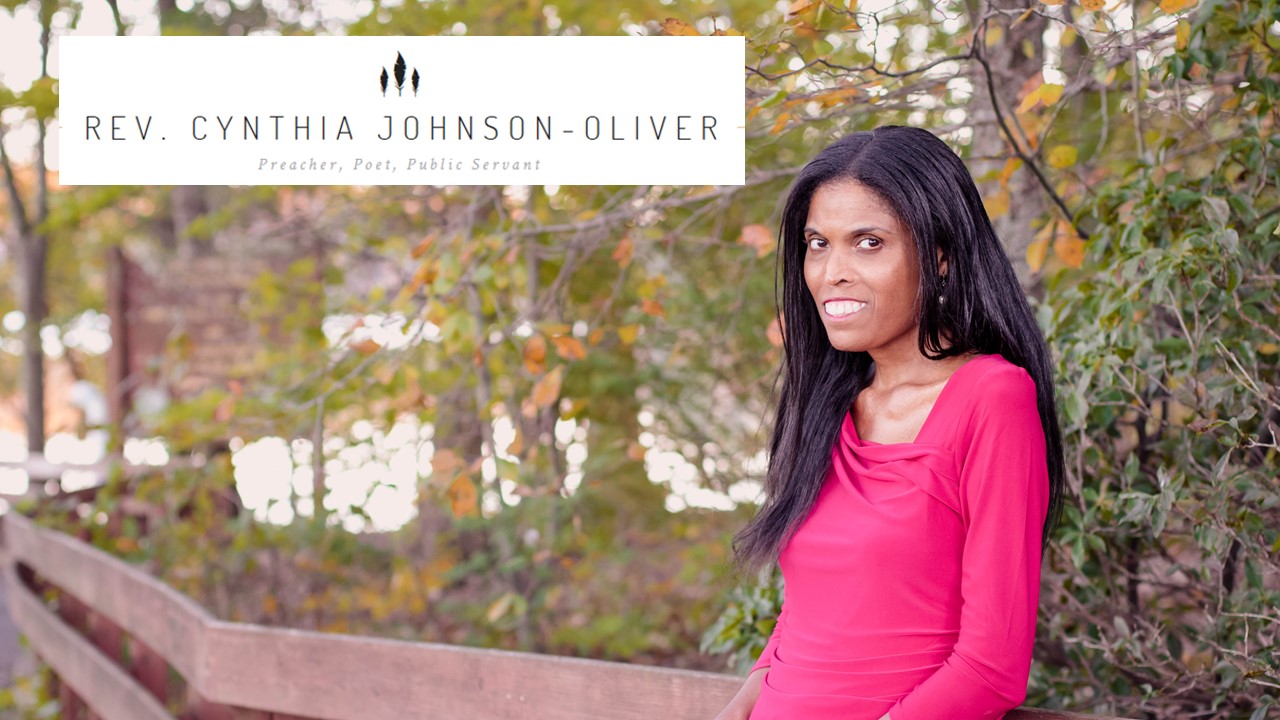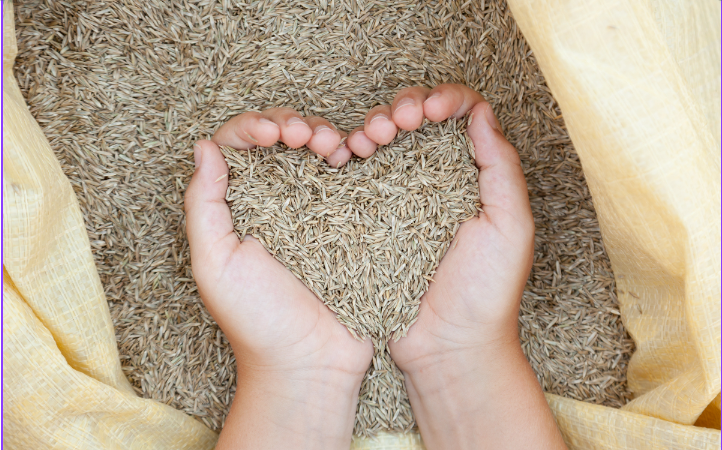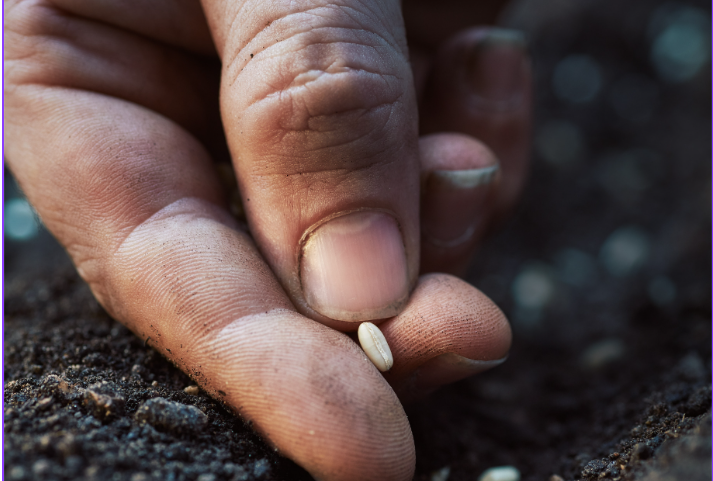[I had the privilege of serving as Online Chaplain at Forma Conference 2023 | Called to Covenant. Forma, a ministry of Lifelong Learning at Virginia Theological Seminary, is an ecumenical network of Christian formation professionals for the Episcopal Church and beyond. These short homilies were delivered at Online Morning Worship on January 18-19, 2023.]
“Again he began to teach beside the sea. Such a very large crowd gathered around him that he got into a boat on the sea and sat there, while the whole crowd was beside the sea on the land. 2 He began to teach them many things in parables, and in his teaching he said to them: 3 “Listen! A sower went out to sow. 4 And as he sowed, some seed fell on a path, and the birds came and ate it up. 5 Other seed fell on rocky ground, where it did not have much soil, and it sprang up quickly, since it had no depth of soil. 6 And when the sun rose, it was scorched, and since it had no root it withered away. 7 Other seed fell among thorns, and the thorns grew up and choked it, and it yielded no grain. 8 Other seed fell into good soil and brought forth grain, growing up and increasing and yielding thirty and sixty and a hundredfold.” 9 And he said, “If you have ears to hear, then hear!””
Mark 4:1-9
“A sower went out to sow.” In Mark chapter 4, Jesus teaches through a series of parables using common themes of Galilean society to illustrate the kingdom of God. In his parables, we often see contrasts. Here we see a hidden message and revealed meaning. We see public speech and private instruction. We see lost seed and bountiful harvest. Through these contrasts, Jesus, an itinerant Galilean preacher, illustrates the kingdom with the power of planting seeds. And although the parable focuses on the seed, I think it’s worthwhile to focus on the sower.
A sower went out to sow. And if you will allow me to disrupt the language, as she sowed, some seeds fell on the path. Some fell on rocky ground. Some seeds fell among thorns. Some fell into good soil.
She is a diligent sower. She keeps sowing despite the challenging environment of the ground. She has little control over the environment. But she has control over her power to plant seeds. She is also a non-judgmental sower. She doesn’t judge the ground or scold the ground. Scholars disagree with whether the sower prepared the soil or whether the context is before plowing techniques were available, but either way, she keeps scattering seeds. She doesn’t know where the seed will take root, so she keeps to her task. The sower doesn’t receive much attention. The text mentions her at the beginning, the parable is even named after her, but the focus is the ground in which the seeds land. But she’s not worried about attention. She simply knows for sure that the seed can’t grow if it’s not scattered. Her focus is to scatter the seeds.
When I think about the work of Christian formation, I think it is the ministry of planting seeds. We plant seeds despite having little control over the lives of those who enter our ministries. We scatter seeds even though it sometimes seems like a thankless task. We scatter seeds hopefully without judgment about the receptivity of the ground because we never know where it will take root. We plant seeds among young people who face challenges we never even considered possible, thorns of social media bullying, school shootings, and even a global pandemic. Sometimes we can only pray that the thorns don’t overwhelm them, but still, we must keep planting seeds.
Scattering seeds takes a tremendous amount of patience. The sower takes an action now knowing whether all the factors will be favorable to producing a crop. As the days and weeks go by, she may get discouraged wondering if there will be a crop. She probably sees the presence of a crop as the measure of her success. But what if there is an alternate view?
What if the measure of our success is not in the size of the crop? What if our success is determined by whether we have planted the seeds? In some cases, we won’t see the outcome of our efforts. The win is in scattering the seeds.

I would go further and say that the measure of our success is not how many children show up or how many volunteers we recruit or how many adults sign up for a small group study. Success is not even measured in whether our programs are perfect, or parents are assuaged, or leadership recognizes our efforts. Rather perhaps the question we should ask at the end of the day is, “Did I plant some seeds?”
Christian formation requires us to take the long view. Some plant the seeds. Others water. And God gives the increase. But it all starts with our willingness to keep scattering seeds.
I remember when I was nine years old, my father was the pastor of a CME (black Methodist) church in Jackson, Tennessee. One Sunday, I went to children’s church and saw an animated video about Jesus. At some point during the video, as I listened intently to the Bible story, my heart felt strangely warmed, to use the words of John Wesley. And like him, I felt that I trusted Christ. I didn’t understand why the video brought tears to my eyes, nor did I understand when I shared my experience with my teacher and my parents, why it brought tears to their eyes. Looking back, I know that they were witnessing that the seed had been planted. I was 9 years old, so that seed had to survive puberty and adolescence. It had to survive teenage rebellion and the untimely death of my father at age 14. But at some point in college, I discerned the call to ministry as that early seed began to blossom. Now, when I was a child, my denomination wasn’t even ordaining many women. That children’s teacher could not have anticipated my ministry. But that was not needed for her success. Her success was her willingness to plant the seed.
If you ever feel discouraged, if you feel the isolation or thanklessness that can characterize formation ministry. I encourage you to take the long view. You can’t really know the receptivity of the ground. You may never know all the fruits of your labor. Our calling is to be the sower. Our calling is to plant the seeds.
Plant seeds of doing justice, loving mercy, and walking humbly with God. Plant seeds of faith, hope, and love. Plant seeds of encouragement to build up those in our care. Plant seeds in diverse ground without judging the soil. Plant seeds in good times and bad, plant them day to day and week to week. Remember that our power, indeed our ministry, is in our willingness to plant seeds.
Tomorrow, we’ll hear more about nurturing the seeds within us, but today, find victory in planting seeds.
Click here to read Nurturing Seeds – Part 2.
Featured Image Photo Credit: Esolla for Canva





